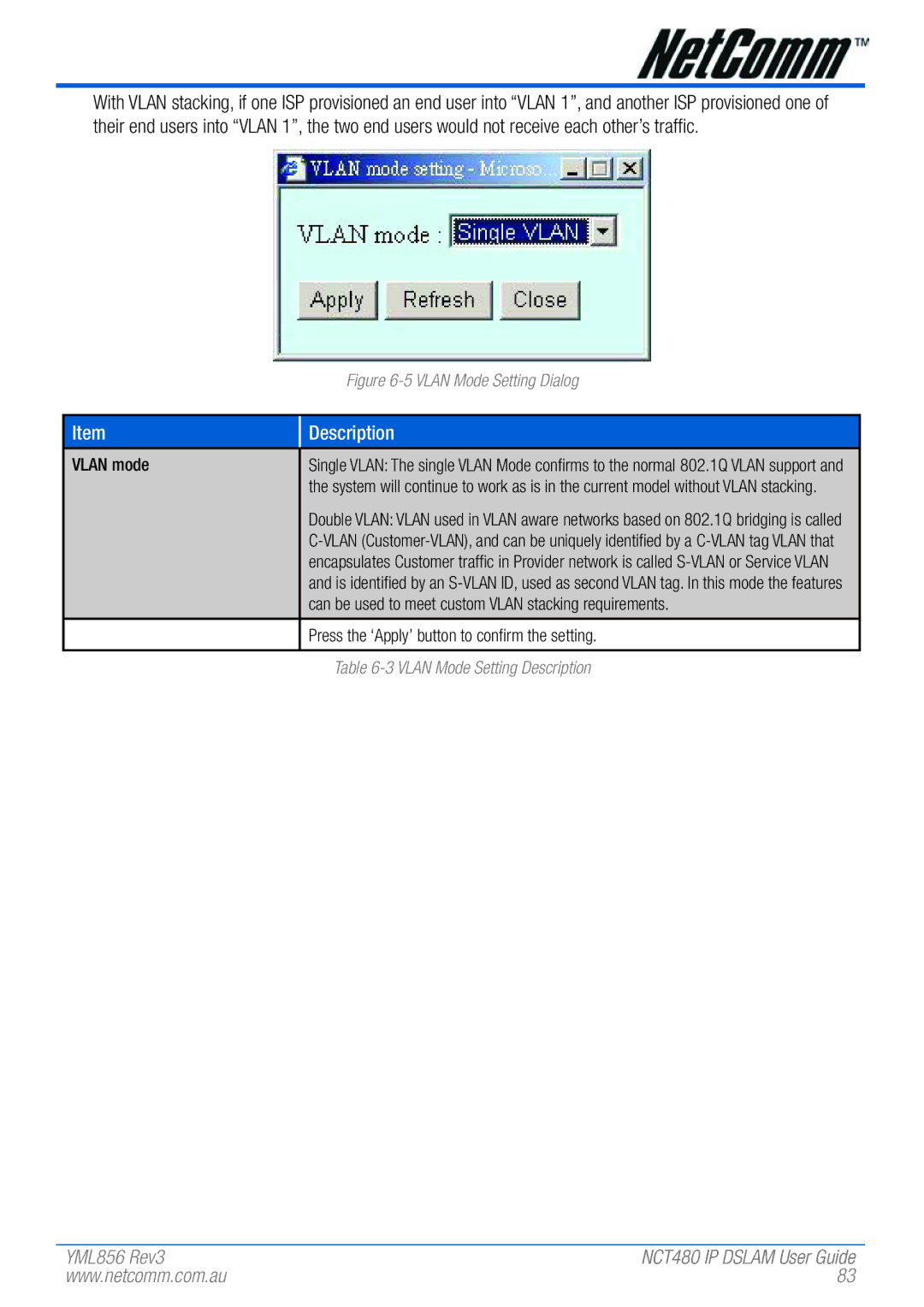
With VLAN stacking, if one ISP provisioned an end user into “VLAN 1”, and another ISP provisioned one of their end users into “VLAN 1”, the two end users would not receive each other’s traffic.
Figure 6-5 VLAN Mode Setting Dialog
Item
Description
VLAN mode | Single VLAN: The single VLAN Mode confirms to the normal 802.1Q VLAN support and |
| the system will continue to work as is in the current model without VLAN stacking. |
| Double VLAN: VLAN used in VLAN aware networks based on 802.1Q bridging is called |
| |
| encapsulates Customer traffic in Provider network is called |
| and is identified by an |
| can be used to meet custom VLAN stacking requirements. |
|
|
| Press the ‘Apply’ button to confirm the setting. |
|
|
| Table |
YML856 Rev3 | NCT480 IP DSLAM User Guide |
www.netcomm.com.au | 83 |
